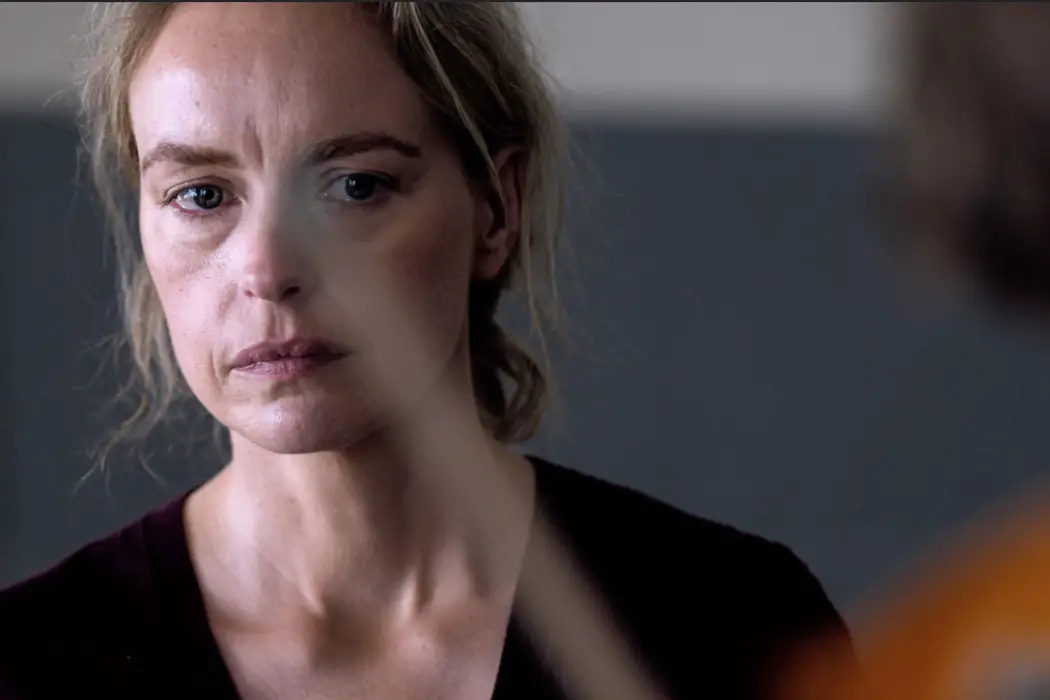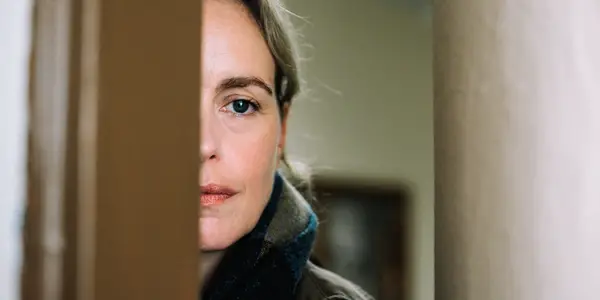TIFF 2019: A Conversation With Ina Weisse, Director Of THE AUDITION

Monique Vigneault is a Mexican-Canadian film critic. She regularly covers…
When I first meet prolific German actor-director Ina Weisse in the wine cellar of a charming hidey-hole on King Street, she exclaims with relief at my arrival: “A woman!”
Weisse‘s energy is warm almost immediately, she flutters with great anxiousness to talk about any and everything that pertains to the world of cinema. She derails my inquisitive questions on her film a few times, “Oh, what do you think, I’d like to know what you think? I already know what I think!” Eventually we settle down over tea and she tells me a little more about her latest undertaking: The Audition, a portrait of a frayed music teacher at a prestigious Berlin academy. The film stars Nina Hoss, also at the festival for Pelican Blood.
Part of this interview was conducted in German through a translator.
Monique Vigneault for Film Inquiry: Your criterion of filmography often veers towards character studies, what is it about things falling apart in a familial construct that is so appealing to explore?
Ina Weisse: Yes, I think the family is the smallest social unit. What you see in the family – all these difficulties to live together – you can see in the whole world. So for me, the family is the best way to look at relationships.
As a director, your style often encroaches in on moments, gestures or mannerisms in conversation which seem to reveal a greater truth about the character. What films or directors have influenced this side of your directorial flare?
Ina Weisse: Mannerisms, what do you mean by that?
For example in one scene Anna struggles to order something and you can see she’s quite flustered–those moments sort of speak to the inner turmoil she’s going through.
Ina Weisse: Oh yes – 0n one side, she’s very strong, and she knows what she wants, and on the other side, she’s very unsure, very undecided with herself. I think that sort of comes together.

You’ve dabbled equally in both acting and directing, when was the first moment you realized you wanted to be on the other side of a lens directing?
Ina Weisse: Very small. I knew I wanted to make both. I made a lot of films with my father together. I took some of these Super 8 clips and made a film about him and the National Gallery in Berlin. I took pictures for my father too. He loves cinema, and me too, I love cinema, but I love always to make both. It’s not ‘you’re an actor or director,’ it’s good to know both. It’s your material – like an architect, or a carpenter – its good to know the material that you’re working with.
Anna, played by Nina Hoss, is sort of unravelling over the course of the film, how did the idea first come about to focus on a woman that’s kind of fraught between opposing sides of herself?
Ina Weisse: It could be a man for me too. I think it’s very hard to find your place in the world. And it doesn’t matter if you’re in your twenties or your forties – I think it’s not easy, and because of that, I wanted to tell something about struggling, and about fighting in that sense.
Early reviews of the The Audition are drawing comparisons to the classic The Piano Teacher starring Isabelle Huppert, in terms of pacing and theme. When did the idea for this kind of narrative initially strike?
Ina Weisse: Some years ago. But it wasn’t like, “Oh, this is a story.” It started with this struggling woman who goes about every border. So I was with my friend Daphne, who I wrote the script together with, and we really started with this and the idea of a musician. Because I’m a musician, I play the violin, and Daphne plays the cello – so we know this world very well, and we wanted to look for a special perspective to this woman. And during this time, looking at this story, it developed. Layer upon layer.

What’s the process of putting the script together like?
Ina Weisse: At the beginning we talk together. Like we are talking right now. About everything. And we put ideas inside, and then, towards the end, I sort of write on my own. Like you, if you write? It’s always a process of writing and throwing it away. But it’s always good to find somebody who understands the idea, like Daphne. It’s hard, like finding a good husband.
What films have influenced your style?
Ina Weisse: I love Bergman. I love Cassavetes. I love Truffaut. The Cinema Français. I like it because of the warmth of the people – of course I love New Hollywood too – Scorsese! So I can’t say, “This is the only film, that was it.” I grew up with films. My mother was an art teacher–so she loves Tarkovsky, you know? And it was so boring for me.
When I ask Weisse if she believes cinema has a way of intersecting with all art forms, she simply asks me, “And you? What do you think?” Quickly we fall into a conversation on foreign cinema and writing. She cites Iranian filmmaker Iranian Kiarostami and Ingmar Bergman as the masters of intersecting other art forms within their films.
Film Inquiry would like to thank Ina Weisse and K2 Publicity for sitting down with us.
The Audition premiered at Toronto International Film Festival on September 9, 2019. It has yet to get a U.S. release date.
Does content like this matter to you?
Become a Member and support film journalism. Unlock access to all of Film Inquiry`s great articles. Join a community of like-minded readers who are passionate about cinema - get access to our private members Network, give back to independent filmmakers, and more.
Monique Vigneault is a Mexican-Canadian film critic. She regularly covers world cinema on the festival circuit.













